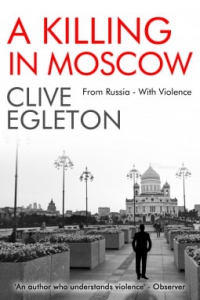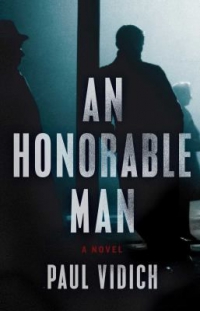A Killing in Moscow by Clive Egleton
 Saturday, September 10, 2016 at 8:43AM
Saturday, September 10, 2016 at 8:43AM 
This is a repost of a review posted on Tzer Island in 2010. The book was first published in 1994. It has been out of print for some time, but has been published digitally by Endeavour Press as of September 8, 2016.
Clive Egleton's second Peter Ashton novel (first published in 1994) is better than his first (Hostile Intent). Ashton is given a stronger personality (the polite British version of abrasive) and he begins to have a life outside the office. The plot is less far-fetched and more interesting than the story in Hostile Intent in that A Killing in Moscow explores the relationship between the KGB and organized crime in post-Soviet Russia, arguing (through Ashton) that it doesn't matter whether the people on the other side are motivated by politics or greed if their actions jeopardize national security.
The novel begins with the execution of British businessman Colin Joyner and the prostitute he was entertaining in his Moscow hotel room. Peter Ashton, not quite trusted or simply disliked by those in power at SIS as a result of his actions in Hostile Intent, has been assigned to run Security and Technical Services where his access to top secret information is limited. Ashton, in Moscow to conduct a security audit, is sent by the British Embassy to assist the local police in the investigation of Joyner's death. This straight-forward task becomes more complicated when Ashton learns that a Russian woman employed as an Embassy secretary has been spying on the British Embassy official who monitors commercial transactions, and has been passing information to the prostitute who was found dead in Joyner's room. The novel follows Ashton as he puzzles out the relationship between the spy and Joyner. As in Hostile Intent, Ashton makes it his responsibility to keep the spy alive, creating the opportunity for some fast moving action scenes.
The pace in A Killing in Moscow is intense and Egleton's prose is more fluid than it was in Hostile Intent. The combination of intellectual intrigue and well written action scenes makes this a fun reading experience, and the ending is just wild.
RECOMMENDED
 TChris |
TChris |  Post a Comment |
Post a Comment |  Clive Egleton,
Clive Egleton,  spy in
spy in  Thriller
Thriller 


